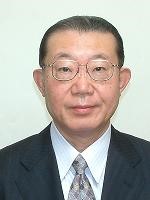Bulletin Board for Current Students
2014-02-03
Global Talent training Seminar "10 useful tips for young people who want to pursue global career"
| Date & Time : | 15:00 - 17:00 on Thursday, February 20, 2014 |
|---|---|
| Place : | Seminar Room #3 on the 7th floor, Administration Bureau Bldg. No.2 Campus Map (in Japanese) |
* Anyone is welcome but your registration (name and e-mail address) is required.
A reminder e-mail will be sent if the day coming near.
Registration form
●Introduction and recommendation
By SEKI Keiichiro, Professor, GraSPP
Mr. SATO Setsuya, who had worked for Bank of Japan about thirty years and is familiar in the activities of international organizations such as World Bank and Bank for International Settlements (BIS), will have "Global Talent training Seminar". After he had worked for the foreign-affiliated insurance company and securities firm, he acted also as Executive Managing Director for Government Affairs and Policy in Japan GE.
Under his rich international experiences, he will make a speech, "10 useful tips for young people who want to pursue global career".
Most of Japanese companies are floating on a big wave of globalization, and some of them, which had been competitive, lost their power rapidly in this trend.
On the other hand, we can see many aggressive companies, using English inside as an official language such as Rakuten and UNIQLO, try to establish worldwide system focusing on the global market.
Now it is greatly helpful for job-hunting in such companies to aim at the talented people who can play an active part globally.
Please join this seminar and take advantage of this good chance.●Outline of the seminar
"10 useful tips for young people who want to pursue global career"
What is a "global talent"? Don't you still believe that, to pursue a global career, you have to attend an English language college, score high at TOEFL or TOEIC, obtain MBA from a Business School in the US or Europe to join US or European global companies? What are the key attributes to become a "world-level" global talent?
To pursue the global career, should you choose the private sector (i.e., investment banks) or the public sector (International Organizations)? An American company or an European company? Manufacturing industry or financial industry? What are the differences between them? How different they are from the Japanese companies?
During the global career journey, how should you cope with the risk of losing your job? How you could you keep your motivation when you actually lose your job?
Mr. Sato will summarize his candid response to these questions as 10 tips by sharing his personal global career experience. The seminar will be practical and interactive.Tip #1: Seek a world class leader as your mentor for life
Tip #2: Ask and you shall receive
Tip #3: Diversity and cross-functional collaborations can be leaned in Japanese organizations
Tip #4: Appreciate you are part of fast-moving world of uncertainty
Tip #5: Build your competence to open another door when one door closes
Tip #6: Appreciate corporate DNA of leadership development as a valuable gift
Tip #7: Different manifestation of “Globalization” is a useful lesson for Japanese corporations’ globalization
Tip #8: Be honest about what motivates you
Tip #9: Secure a credible organization as your constituency
Tip #10: Create your own mission statement and follow through●About Mr. SATO Setsuya
Senior Executive Advisor,
Japan Government Affairs & Policy,
GE Japan Corporation
He spent most of his professional career, from 1975 to 2002 at the Bank of Japan, where he held various senior roles including Chief Bank Examiner, Senior Economist and Manager, in such central banking activities as monetary policy planning and economic analysis, bank supervision and monitoring, troubled bank resolution and international finance.
Mr. Sato has extensive experience abroad at multi-national financial institutions. From 1999 to 2002, he worked for the Bank for International Settlements in Basel, as Senior Advisor and Head of Special meetings at its Monetary and Economic Department. From 1993 to 1997, he worked for the World Bank in Washington, D.C., as Financial Advisor in its Financial Sector Development Department. From 2002 to 2004 he was Vice President and Chief Risk Officer at the Japanese subsidiary of UK Prudential Plc.
Mr. Sato holds a B.A. in Economics from Tokyo University (1975) and a M. Phil. in Economics from Oxford University (1980). He is also a U.S. Certified Public Accountant (State of Delaware) and Certified Internal Auditor. He is the author of numerous books and articles on corporate restructuring, payment and clearing systems, electronic money and e-finance, in both English and Japanese.
Their titles include: Electronic finance; an overview of the issues (in Electronic finance: a new perspective and challenges, BIS Papers No. 7, with John Hawkins, November 2001), The Evolution of Money: from Real to Virtual (Sigma Base Capital Publishing, 1999), The Economics of Financial High-technology: the Functioning of Swaps, Options and Financial Futures (Toyo Keizai Publishing, 1991). He was born in Tokyo in 1952.July 2013
「グローバルキャリア養成セミナー」開催のお知らせ -グローバルキャリアを目指す貴方へ贈る10のアドバイス-
| 日時: | 2014年2月20日(木)15:00~17:00ごろ |
|---|---|
| 場所: | 第2本部棟7階 第3演習室 キャンパスマップ |
※ 参加は自由ですが、事前に氏名とアドレスを登録してください。
日程が近づいたらリマインドメールを送ります。
Registration form
●内容紹介と推薦
公共政策大学院教授 関啓一郎
30年近く日本銀行に勤務され、世界銀行や国際決済銀行で活躍された佐藤節也氏を講師に迎えて、グローバル人材養成セミナーを開催します。佐藤氏は、日本銀行の後、外資系保険会社や証券会社で働き、日本GEの専務執行役員もされておりました。
その豊かな国際経験を活かし、「グローバルキャリアを目指す貴方へ贈る10のアドバイス」という演題でお話をいただきます。
日本企業もグローバル化の洗礼を受けています。かつて競争力を持っていた企業でも、グローバル化の流れで急速に力を失った例もあります。社内公用語を英語にする楽天やユニクロなど、世界市場を目指した体制作りに力を入れる企業も多く見られるようになりました。グローバルで活躍できる人材を目指すことは、就職活動にも大いに役立ちます。
英語で双方向の議論を行いますが、英語が苦手な人も歓迎しますので、英語学習も兼ねて参加してください。●セミナー:「グローバルキャリアを目指す貴方へ贈る10のアドバイス」の概要
「グローバル人材」とは何か?英語の専門学校に通い、TOEFL やTOEICで高得点を挙げ、欧米のビジネススクールに留学して箔をつけ、卒業直後から欧米のグローバル企業に就職してバリバリ実績を挙げるのでなければ「グローバルキャリア」ではないとの思い込みはないか?「世界で勝つ」グローバル人材の要件とは?
グローバルキャリアを選択するとき、国際機関のようなパブリックセクターの道を進むべきか、投資銀行のようなプライベートセクターの道を進むべきか。米国系を選ぶべきか、欧州系を選ぶべきか。製造業を選ぶべきか、金融業を選ぶべきか。それぞれの本質的な違いは何か。日本の企業と外資系企業はどこがどう違うのか。
いざグローバルキャリアの航海に乗り出したものの、途中で職を失う危機に直面したらどうしたら良いか。実際に職を失ったとき、どうモチベーションを維持したら良いか。
講師がこれまでのグローバルキャリア経験を通じて直に感じ取ったこと、悩んだこと、実践していることを10のアドバイスにまとめて、率直なところを実戦的にお話しします。インタラクティブな形式ですので、何なりと遠慮なくご質問ください。
- 一流クラスのリーダーを生涯のメンターとせよ
- 求めよ さらば与えられん
- ダイバーシティと部門横断型コミュニケーションは日本人組織からも学べる
- 自分も不確実で変化の速いグローバル世界の一部であると認識せよ
- コンピテンスは逆境にあって転機を招き入れる鍵と思え
- リーダーシップ育成を組織のDNAとする企業は人材への投資を惜しまない
- 異なるグローバリゼーションの現れ方は日本企業グローバル化の参考になる
- 自分のモチベーションに正直であれ
- 信頼に足る組織で自身の成長の基盤を作れ
- 個人的なミッション・ステートメントを作れ
●佐藤節也の略歴
日本GE株式会社 シニア・エグゼクティブ・アドバイザー

2009年10月政府関連統括本部長として日本GE株式会社に入社、2010年6月、専務執行役員 政府関連統括に就任。2013年7月より現職。
日本GE入社以前は、2007-2009年、UBS証券会社においてパブリックポリシー担当エグゼキュティブディレクター、2004-07年、産業再生機構においてリレーション・マネジメント担当シニア・ディレクター、2002-04年、英国プルーデンシャル保険会社日本法人のリスク管理担当執行役員を務めた。
27年(1975-2002年)におよぶ日本銀行での経歴において、考査局考査役、信用機構局、金融研究所、国際局等、セントラル・バンキングの主要業務を幅広く経験。また、日本銀行在籍時に世界銀行(ワシントン本部)に金融セクター開発局ファイナンシャル・アドバイザーとして出向(1993-97年)、ロシア、ベトナム、インドネシア等の開発途上国の決済システム改善プロジェクトを担当したり、国際決済銀行(スイス、バーゼル)に金融経済局シニア・アドバイザーとして出向(1999-2002年)するなど、豊富な国際経験を併せ持つ。
また、「ナッシュ均衡時代の産業再生」(神戸大法科大学院)、「金融ハイテクの経済学」(東洋経済新報社)、「決済システムをデザインする」(シグマベイスキャピタル)、「マネー進化論」(シグマベイスキャピタル)、事業再生、デリバティブ、決済システム、電子マネー、eファイナンス等の分野で多数の論文・著書(英文・和文)も執筆している。
1975年東京大学経済学部卒業。1980年英国オックスフォード大学にて経済学修士課程(M.Phil)取得。米国公認会計士(デラウェア州)、公認内部監査人。7/1/2013

